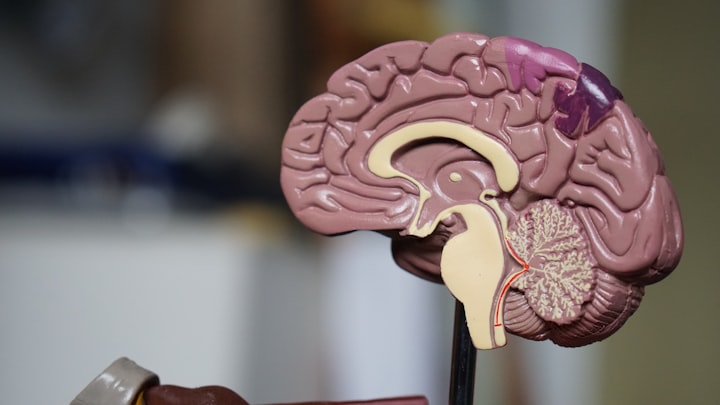
Depression sucks. I don’t know how else to put it. It can make the simplest tasks seem impossible, and it can feel like you’re wading through molasses just to get through the day. At it’s worst, mine could descend without warning, and crash over me like a black wave, completely drowning out any possibility of happiness. At times I was virtually catatonic. When you’ve tried everything to feel better, from therapy to medication, and nothing seems to work, it can be even more frustrating.
That’s why I want to share my story of how I overcame depression without antidepressants. My personal story goes back some years, I was diagnosed with Clinical Depression at around 18, in 1999. I believe it is now better understood by General Practitioners, but at the time the advice I was given was frankly shocking. The doctor explained to me it was simply due to a chemical imbalance in my brain, I would never be ‘cured’, and the only thing to do was to manage the condition through the use of antidepressants. He proposed they start me off on the now partially known for its harmful effects, ‘Seroxat’, see how I get on and tweak the type of medication until we found a good fit.

I was obviously not in a good state of mind at the time, and the decision to go to doctor for help, was one made of desperation having been circling suicide and fearing for what I might do. It had got to point where I’d started becoming convinced my soul had somehow died already, and I was just an empty husk, so the idea of finishing my life no longer seemed bad, it actual started to seem logical. That’s what scared me.
I consider what the doctor told me to be one of the worst, and most irresponsible things I have ever been told. Worst of all, in my state of mind, I believed him, at least for a while. It did genuinely feel to me that I would be like this forever, there was no hope of ever being ‘normal’ again, and I had no other option. I started to identify that I was a person with a lifelong illness. This type of thinking can be incredibly damaging, and in my experience at least, turned out to be entirely untrue.

Now, don’t get me wrong: I’m not anti-medication. For some people, antidepressants are a lifesaver, and in many conditions, medication can be essential. But for me, they just didn’t do the trick. If anything, the various drugs made me worse, I couldn’t feel emotions properly, my apathy increased in a hard to define way, and suicide if anything, seemed less important to avoid. Maybe I could think I was a solo case, but it turns out I’m not alone. Not even close.
Recent research has shown that antidepressants may not be as effective as we once thought. A meta-analysis was performed of 522 placebo-controlled trials found that only 21% of people with depression saw a significant improvement with antidepressants, compared to 13% who saw a significant improvement with a placebo. That’s not a huge difference, and it’s certainly not the life-saving fix we were hoping for.
So, what did work for me? Well, it wasn’t a quick fix, but it was something that made a huge difference in the long run: exercise. I know, I hear you, you’ve heard this all before, it’s not groundbreaking. But hear me out.
When I was in the throes of depression, the last thing I wanted to do was go for a run or hit the gym. I honestly had to force myself to do it, it was a challenge, far more so than most realised. But you know what? It helped. A lot. There’s a ton of research out there that supports exercise as a way to alleviate symptoms of depression. It releases endorphins, which are natural mood boosters, and it can help regulate the chemicals in your brain that affect your mood.
Plus, there's the added benefit of feeling accomplished and proud of yourself for doing something good for your body. And when you're depressed, those small wins can make a big difference.

I’m not saying exercise is a cure-all. It’s not, and I also had to make other changes in my life. One of the really big turning points was realising I am not my depression. I had once heard the phrase ‘depression is anger turned inward’. It had stuck with me and mulled over in my mind for a long time. I had a revelation one day and started to see my depressive self as ‘not me’. The other phrase that I kept thinking about is ‘the greatest trick the devil ever pulled is making you think he doesn’t exist’. For the record I am not religious so please don’t get me wrong, but I started seeing depression almost as an entity separate to myself, something that had tricked my mind into thinking it was a part of me.
I understand this in itself may sound mentally unstable, but I understand it looking back as a sort of mental reframing. Exercise gave me a little respite to see things differently, and this revelation gave me a way of externalising my condition, and focusing an anger outward, rather than inward. Anger is classically seen as a negative force, but starting to see this condition as separate from me, and getting angry at it, enabled me to fight it, to become stronger, and not listen to its familiar, dark voice.
Gradually I started eating better, getting more sleep, and making time for things that brought me joy, like reading and spending time with friends. I was honest with myself and my loved ones about how I was feeling. It certainly wasn’t easy, and took years rather than months, but it was worth it. I consider it took seven years to get back to something approaching ‘normal’, and if I had understood my own mind earlier it could have been much faster, but this was the journey I had to take.
I won’t lie and say that I’m cured of depression forever. It still comes and goes, as it does for many people. But I’m better equipped to handle it now, it never reaches anything near the depths it had. It’s almost just an occasional melancholy. I now know what works for me, and I have a toolkit of strategies to help me get through the tough times. I have been empowered and renewed by knowing my own mind, and my true strength. And that’s something worth celebrating.

So, if you’re struggling with depression and antidepressants are not the answer for you, please don’t lose hope. There are other options out there. Talk to your doctor, talk to a therapist, find others who have been through it and come out the other side. Do your research, and don’t be afraid to try something new. You never know what might make the difference. And if all else fails, remember: there is always a cat video on Youtube to watch. 😉
References
1. Cipriani A, Furukawa TA, Salanti G, Chaimani A, Atkinson LZ, Ogawa Y, Leucht S, Ruhe HG, Turner EH, Higgins JPT, Egger M, Takeshima N, Hayasaka Y, Imai H, Shinohara K, Tajika A, Ioannidis JPA, Geddes JR. Comparative efficacy and acceptability of 21 antidepressant drugs for the acute treatment of adults with major depressive disorder: a systematic review and network meta-analysis. Lancet. 2018 Apr 7;391(10128):1357-1366. doi 10.1016/S0140-6736(17)32802-7. Epub 2018 Feb 21. PMID: 29477251; PMCID: PMC5889788.
About the Creator
Liam Wood
Writing is something that has stayed with me throughout life, the ability to lose myself in a book, has, and always will be, something magical to me. I hope to develop my own writing ability as I find myself at a point in my life with time.






Comments
There are no comments for this story
Be the first to respond and start the conversation.